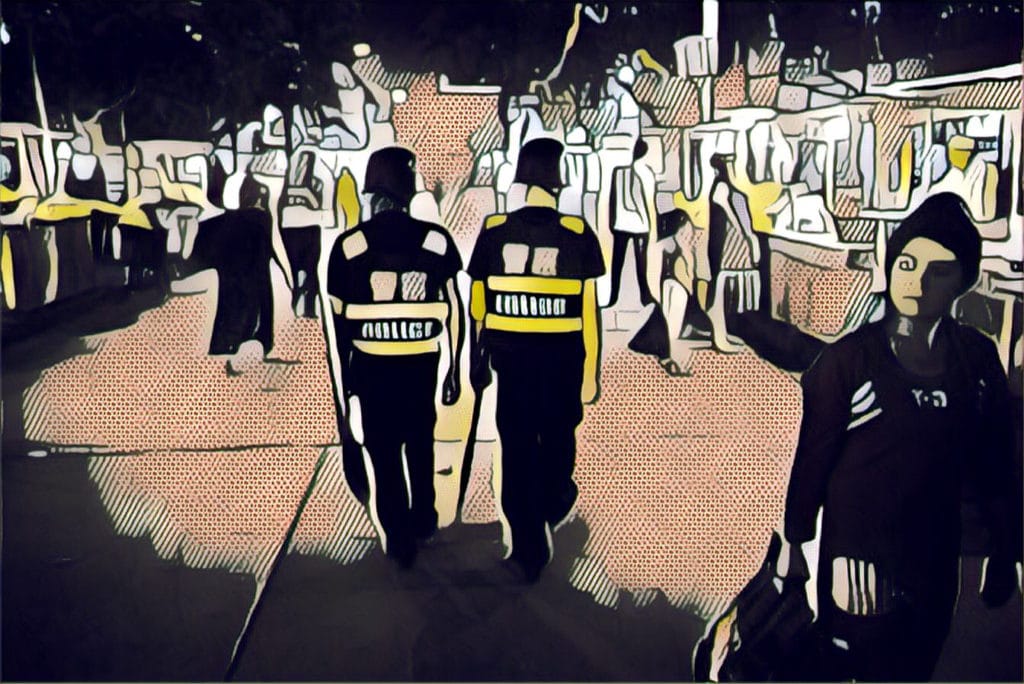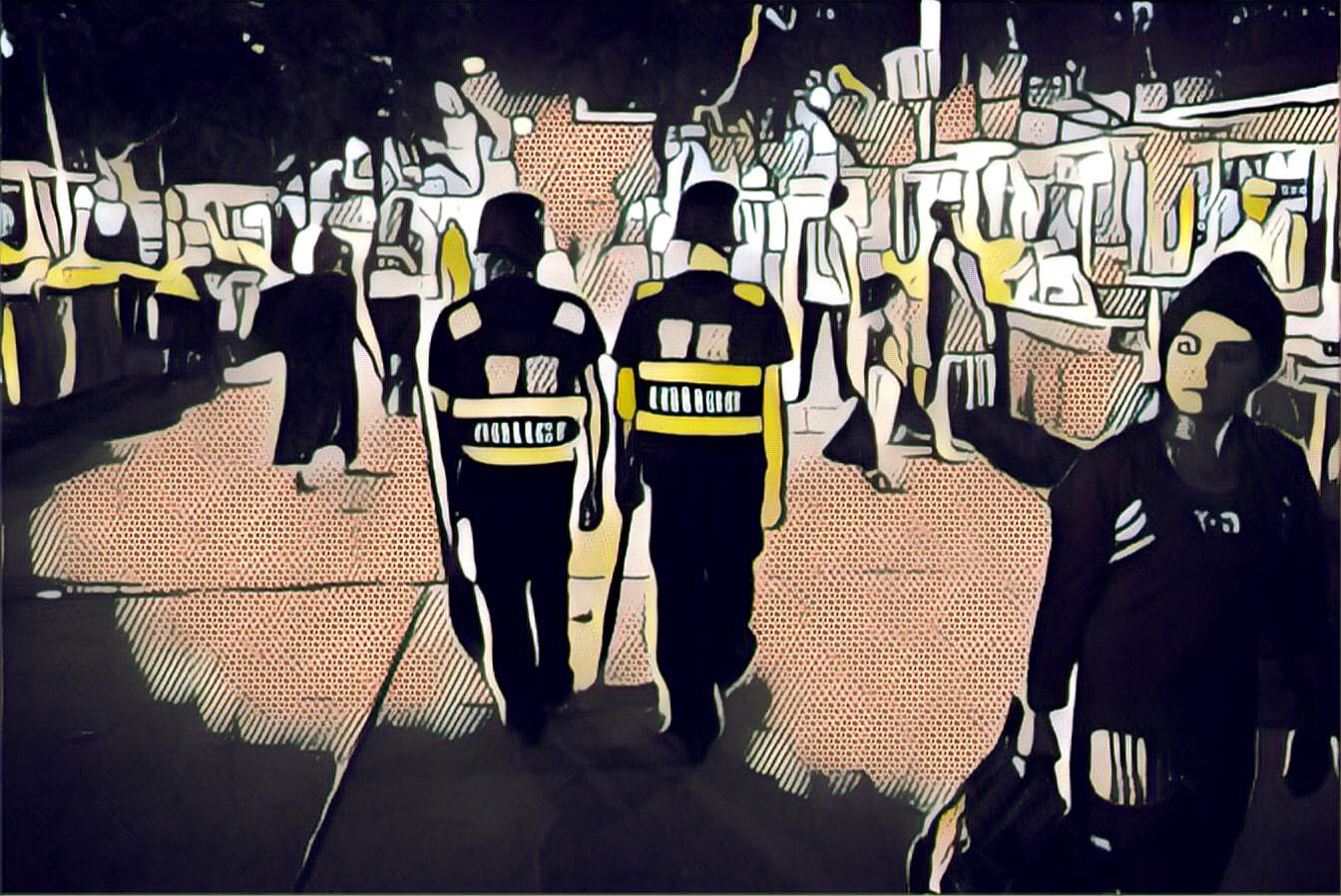China has developed a Big Brother-like system of surveillance and big-data technology to monitor and incriminate ethnic minorities by using their personal information to deem them government threats.
China is apparently turning the benefits of big data around on its citizens: implementing a Big-Brother-like surveillance system to monitor and incriminate ethnic minorities, Human Rights Watch said Wednesday.
Chinese authorities in the province of Xinjiang—a particularly restive region—have built and deployed a predictive-policing program based on big-data analysis called the Integrated Joint Operations Platform (IJOP), according to the international human-rights watchdog agency.
The government designed the platform to use a high-tech surveillance and data-collection methods to aggregate data about citizens in the region, according to Human Rights Watch (HRW). China’s target is the Uyghurs–a Turkish ethnic group that is predominantly Muslim, though other ethnic minorities are also tracked with the goal of identifying people China’s officials consider threats.
China already has used the platform to target and detain citizens, who are being held against their will indefinitely in so-called “political education centers” without due process of law, those affected told HRW in interviews.
Big Brother is watching
From the HRW description of the system, IJOP is truly a “Big Brother”-like system, allowing the government to keeps its “eyes” on citizens using, among other things, sensors in CCTV cameras.
IJOP gathers data by using cameras in locations police consider sensitive–such as entertainment venues, supermarkets, schools, and homes of religious figures, HRW said. Some of the cameras have facial-recognition or infrared capabilities to bolster their abilities to specifically identify citizens.
Cyberspying using Wifi sniffers also is another aspect of the program. The sniffers intercept data—such as the unique identifying addresses of computers, smartphones and other networked devices–transmitted over a network and decode that data into human-readable format. Authorities then use that information against those it deems threats.
In addition to its high-tech spying methods, China also mines data, such as license-plate numbers and citizen ID card numbers, from some of the Xinjiang region’s numerous security checkpoints and visitor-management systems to use in IJOP. IJOP then sends those checkpoints and systems real-time, predictive warnings to help officials identify targets on the ground.
The IJOP also leverages existing information, such as one’s vehicle ownership, health, family planning, banking and legal records, HRW said. China also is requiring police and local officials in the region to submit to IJOP information on any activity they consider “unusual” during home visits and policing. This information can be as seemingly innocuous as the possession of what authorities consider a large amount of books in a person’s home, according to a person interviewed by HRW.
Chinese tactics to violate citizen privacy
IJOP wouldn’t be the first time China–a known bad actor on the global cybersecurity front–has been suspected of or proven to be collecting personal information from people without their knowledge or consent. In one notable data-security case in 2016, software from Chinese company Shanghai ADUPS Technology C.o used in a brand of smart phones sold in the U.S. was found to secretly send private information about the phone’s owner back to servers in China, according to a report by the security firm Kryptowire.

HRW’s identification of IJOP marks the first time the organization can demonstrate that the Chinese government’s use of big data and predictive policing not only blatantly violates privacy rights, but also enables officials to arbitrarily detain people, said Maya Wang, senior China researcher at HRW.
“People in Xinjiang can’t resist or challenge the increasingly intrusive scrutiny of their daily lives because most don’t even know about this ‘black box’ program or how it works,” she said in a HRW press release.
Indeed, interviewees have offered chilling reports of how China is targeting Uyghurs and other ethnic minorities using IJOP, according to HRW.
“I saw with my own eyes, on designated computers … the names, gender, ID numbers, occupation, familial relations, whether that person is trusted, not trusted, detained, subjected to political education (and year, month, date) for every Uyghur in that district,” an interviewee told the agency, according to HRW. “Those detained or not trusted, their color [coding] is different.”
The content of the forms China is keeping on individuals also is different depending on the data the government already has on a citizen, the interviewee said.
“For example, for Uyghurs who have passports: when they got it, where did they go, how long did they stay, when did they come back, did they give their passports [to the police], did they come back from abroad, the reasons for travelling abroad such as family visits, tourism, pursuing studies, business, or others” also is included in the data stores, according to the interviewee.
Increased surveillance and detainment
Authorities in Xinjiang have increased mass-surveillance measures in recent years as part of a government campaign called “Strike-Hard” that on paper targets anyone suspected of political disloyalty or those engaging in “terrorist” activities, according to the government. More often than not, the campaign is a way to control the Uyghur and other ethnic minorities from even peacefully expressing religious or cultural identity, HRW said.
[You might also read: Smartphone Users Tracked Even with GPS, WiFi Turned Off]
Since around April 2016, the watchdog organization estimates that Xinjiang authorities have detained and held without trial or charge tens of thousands of Uyghurs and other ethnic minorities.
“If the Chinese government’s goal is to prevent bona fide crimes, it could train police and procurators in professional, rights-respecting methods, and empower defense lawyers,” HRW’s Wang said. “Arbitrary mass surveillance and detention are Orwellian political tools; China should abandon use of them and release all those held in political education centers immediately.”

